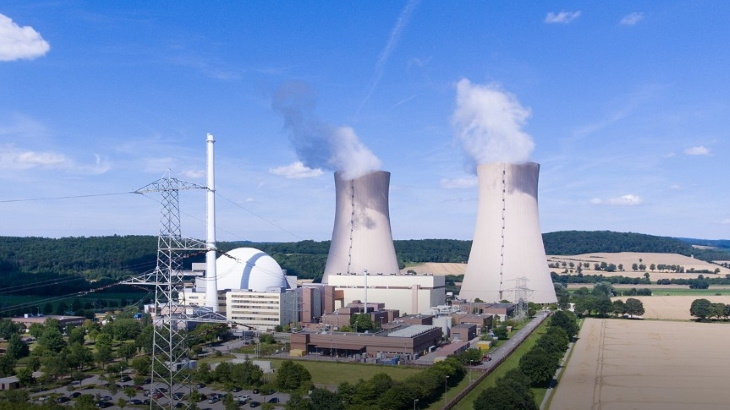
PreussenElektra - a subsidiary of EOn Group - applied for approval to decommission and dismantle the 1360 MWe pressurised water reactor in October 2017.
After six years of review, the Ministry of the Environment has now approved the individual procedural steps for the decommissioning and dismantling of the plant.
"Over the past six years, many colleagues have worked to ensure that we can now hold the permit in our hands," said Plant Manager Peter Schwarz. "It's great that we can now get started and put our preparatory planning work into action."
The company said that since Grohnde shut down on 31 December 2021, "the prerequisites for the dismantling of the system have been created, ie among other things, the primary cooling circuit has been decontaminated, systems and components that are no longer required have been taken out of operation, and the personnel organisation has been adjusted. Replacement systems were installed and put into operation to supply the system with energy".
The next steps in the plant's dismantling will be to create new logistics routes within the control area and to establish a residue processing centre in the reactor building for the dismantled material. In addition, systems that are no longer required will be shut down and preparations will be made for dismantling the components in the reactor pressure vessel. At the same time, the remaining fuel elements in Grohnde's wet storage facility will be transported to the approved interim storage facility for highly-radioactive fuel elements at the plant site. The nuclear dismantling is scheduled to be completed by 2037.
During the dismantling of Grohnde, around 15,000 tonnes of material from the control area are expected to be dismantled, measured and cleaned with the aim of recycling them. Residues from dismantling that cannot be released will be treated as low- and intermediate-level radioactive waste. These will be separated, treated, packaged and made available at the location in the transport preparation hall that is yet to be built. From there it will then be transported to the future final disposal facility, the Konrad repository.
PreussenElektra is responsible for the decommissioning of eight nuclear power plants in Germany. Isar 2 was the last of the PreussenElektra plants to cease operations on 15 April this year. The Brokdorf and Grohnde plants were shut down on 31 December 2021. With the already decommissioned Isar 1, Stade, Unterweser and Würgassen plants, all of PreussenElektra's nuclear facilities are now in various phases of decommissioning and dismantling.
"With the KWG, all three PreussenElektra plants in Lower Saxony are now in the process of being dismantled: conventional demolition of power plant buildings has recently begun at the Stade nuclear power plant, and dismantling is in full swing at our Unterweser nuclear power plant," said PreussenElektra CEO Guido Knott.
"With the knowledge from these dismantling projects, we are well prepared and confident that we will be able to complete the nuclear dismantling of the KWG as planned at the beginning of 2037."
PreussenElektra's goal is to dismantle its power plant fleet by 2040.
Final CASTOR order for German plant
German radioactive waste specialist GNS Gesellschaft für Nuklear-Service mbH said that the last of its CASTOR used fuel storage casks for a German nuclear power plant is expected to be delivered to Grohnde in 2025.
So far, more than 1400 CASTOR casks supplied by GNS have already been loaded with used fuel and vitrified reprocessing waste from German nuclear power plants and are stored in on-site as well as centralised interim storage facilities. The company will deliver around 150 more of the 100-plus tonne dual-purpose casks in the coming years.
GNS has now signed its final order from a German power plant operator for a CASTOR cask. In November, PreussenElektra ordered its last cask from GNS which will be used at Grohnde.
To date, around 260 CASTOR casks have already been loaded and stored at the five PreussenElektra sites. By the end of the decade, this figure is expected to rise to 328. A total of more than 1600 CASTOR casks will eventually be in safe interim storage in Germany in the on-site and centralised interim storage facilities, as well as in the interim storage facilities of research and federal institutions.
"The last CASTOR order for a German nuclear power plant is definitely a significant milestone for us, but it does not mean the end of our cask business by a long shot," said GNS CEO Daniel Oehr. "Based on the experience we have built up over the decades and our sophisticated product range, we already have long-term orders from foreign power plant operators, for example from Switzerland and Belgium.
"In the last seven years alone, GNS has received orders for more than 120 CASTOR casks from customers outside Germany. And we are working hard to win new customers from other countries."